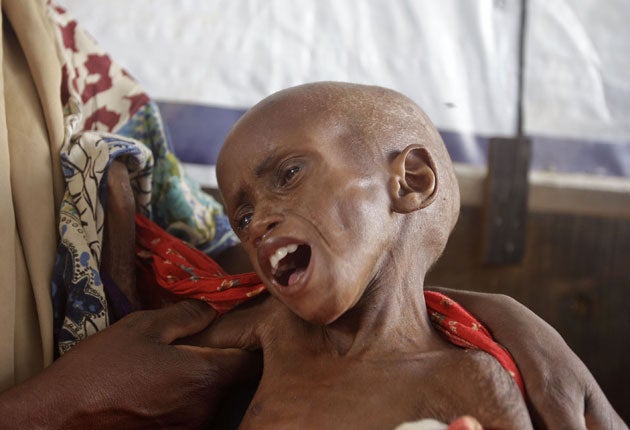UN: £220m more needed to help those on Kenya's 'roads of death'

An extra $360m (£220m) is urgently needed to tackle the food crisis in Somalia and across east Africa, the World Food Programme said yesterday, as aid agencies dubbed the routes to Kenya's refugee camps "roads of death" thanks to the numbers dying on the way.
Josette Sheeran, executive director of the UN World Food Programme, said at an emergency UN summit in Rome that a fatal combination of natural disaster and regional conflict had created an emergency affecting more than 12 million people, causing food distribution services to be "completely overwhelmed". "We want to make sure the supplies are there along the road because some of them are becoming roads of death where mothers are having to abandon their children who are too weak to make it or who have died along the way," she said.
The World Bank announced ahead of the meeting that it was providing more than $500m to assist drought victims, in addition to $12m in immediate aid to help those worst hit. But Oxfam said that overall another $1bn was needed to handle the situation. Tomorrow there will be a donor pledging conference in Nairobi that hopes to raise up to $1.6bn to tackle the food crisis.
At a stabilisation centre for malnourished children in Ifo I, one of three refugee camps in Dadaab, northern Kenya, the strain on services is all too visible. Alongside the screening tents is a cramped feeding room made from breeze blocks. In here some 60 tiny children and their mothers struggle for space on the floor surrounded by flies. Moor Habibo Mohammed, 26, is crouched over her 18-month-old son Abdi Kadir Mohammed, helping him to eat from a foil pouch of the fortified food called plumpy'nut. He coughs as he struggles to swallow and she rushes to grab a mug of water. The mug is bigger than his entire emaciated torso.
The number of severely malnourished children in the refugee camp has reached a critical level. A survey by Unicef showed that 30 per cent of under-fives living in Ifo I were suffering from malnutrition. Of these, 6.9 per cent had severe acute malnutrition.
Patrick Codja, a nutrition specialist for Unicef, said: "There's an urgent need to increase treatment capacity. Everything is up: the caseload has increased, the treatment has increased and infant mortality has increased."
Subscribe to Independent Premium to bookmark this article
Want to bookmark your favourite articles and stories to read or reference later? Start your Independent Premium subscription today.

Join our commenting forum
Join thought-provoking conversations, follow other Independent readers and see their replies